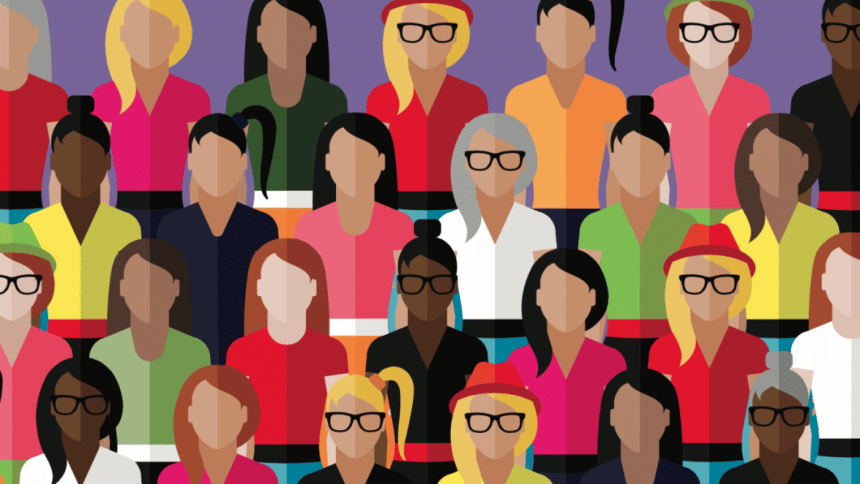Not a coincidence

On this International Women's Day – the one day that we women get to call our own – we had the Women's Strike. But, I went to work because I wasn't sure I had a choice in the matter. Turns out I did, but that is another story for another day.
The strike reminded me that as workers (just because we are academics does not mean we are not workers) we should be upset that this used to be International Working Women's Day, that thanks to bourgeois institutions that benefit from homogenising women, it was decided that all women should be treated as one, that all women experience the same things.
That made me think about why a day like this is important: 1) because women's rights continue to be trampled upon on a daily basis across the world; and 2) because many of us have the impression that gender inequality is no longer a problem, particularly in some parts of the world.
We believe that because that is what we have been taught to believe.
We have been taught that men and women already have equal rights, just in different domains.
We have been ascribed gender roles and have been told that this is how things are done.
We have been taught certain ideas about what "normal" looks like. Examples include heteronormativity (the idea that people are heterosexual male or female with prescribed gender roles), beauty standards (imposed by media and society), and values (decided upon by those in power) - deviation from which makes us more likely to feel shame and/or stigma, based on the extent of the deviation, which in turn act as enforcers of such norms.
We have been taught to not question such norms so well that we even have a word for those who do in Bangla: beyaddob.
We have been taught that the pay gap (in the United States, for example) is either a myth or justified.
We have been taught that because we can now work outside the home, we are free.
We have been taught that equality means that women should be like men. So, when we find ourselves in positions of power we emulate what men do. A classic example is that of mothers-in-law who, in the absence of their sons, readily use tools of punishment, including violence, to reprimand their daughters-in-law when they are "out of line."
We have had to accept, for the most part, the double burden of providing paid labour for capitalists and unpaid labour at home, both of which can be and are often exploitative.
At the same time we have also learnt how to provide for the needs of the family, including child and elderly care, in a system that de-prioritises both.
Meanwhile, we have had to deal with the guilt of not being there for our families, particularly our children, especially when we have to work long hours. That guilt, in turn, taught us to accept it when our husbands use violence against us for not being good mothers or wives. We then learned to take blame and internalise that violence, and pretend that everything is fine to the outside world.
In sum, we, without question, believe in the myths produced by the capitalistic neo-patriarchal system in which we live, while taking responsibility of the ills that it creates.
These myths are sold to us in the form of tradition, nationalism, fear, success, safety, responsibility, even freedom, and choice. These are words that we feel an emotional connection to, good or bad, and we fall for it, every time. These words are used to manipulate us, change us.
But yet, every time someone says they're setting us free, we dare to dream. That is where lies a shadow of hope.
Let us not marginalise this day for women in the same way that we marginalise women in general - this day is not "just another day" - we need a day like this to highlight that women do not have the same economic, political, and social rights as men – anywhere in the world. We need it to recognise the plight of trans women who are among the most discriminated women in the world. We need to recognise that some women have more privilege than others.
We need this because we have many identities, we have many experiences, our class position, race, education, gender, sexual orientation, religion and other identities intersect in ways to create different experiences for all individuals.
We need a day to talk about those experiences.
We need to discuss that if we are low-income minority women, say from the Chittagong Hill Tracts, that means that we are more likely to be in locations that are violent for us.
If we are garment factory workers in urban areas we have to navigate the inadequate transportation system that expose us to sexual harassment to take on the streets by travelling in groups with our heads covered with ornas. We need to talk about how that isn't enough, that we still need a safe transportation system.
We need to talk about how social class does not prevent women from experiencing domestic violence, about how women experience victim blaming and increased chances of being killed when they seek help for domestic violence and try to leave abusive relationships.
We also need to talk about how to raise boys, how to meet their emotional needs, how to model the right behaviours to them, and how to make men a part of the solution because men are well positioned to challenge and break down patriarchy/neo-patriarchy as allies.
We need this day because every other day we are so busy navigating this neo-patriarchal world that we don't have time to think. About solutions. Or about ourselves.
Come to think of it, that is probably not a coincidence.
The writer is Assistant Professor, School of Social Work, University at Buffalo, State University of New York.

 For all latest news, follow The Daily Star's Google News channel.
For all latest news, follow The Daily Star's Google News channel. 



Comments